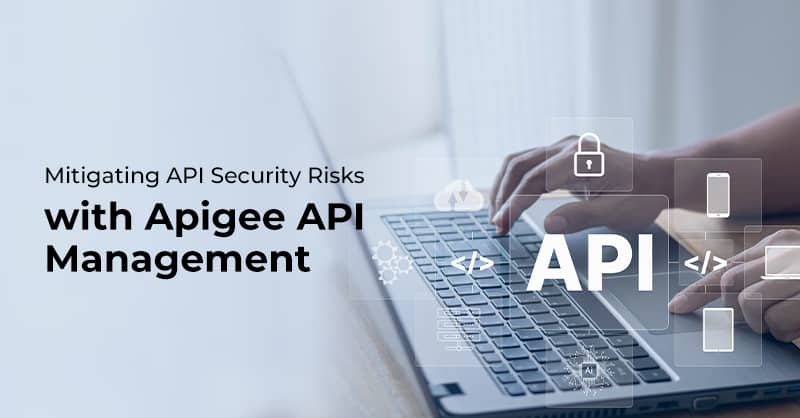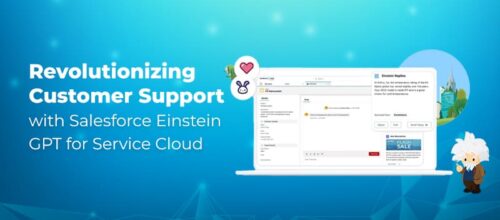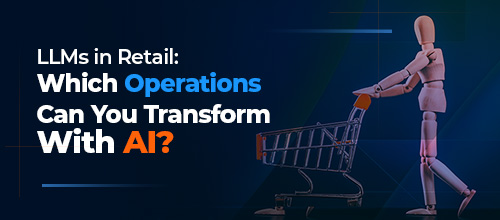Mitigating API Security Risks with Apigee API Management

Written by Harini Krishnamurthy
Technical Content Writer
May 23, 2023
The Importance of API Security in the Age of Digital Transformation
API management solutions secure and mediate the traffic between a company’s APIs and the developers, customers, partners, and employees who use those APIs.
Digital business is built on the design principle that internal and external users will use the system. As a result, OAuth is one of the most widely used forms of authentication for consumer or partner-facing apps, making OAuth support for all constituents critical to modern API infrastructure.
Security is foundational to API infrastructure, both from the APIs to the backend services and from the API to the apps— that is, across the entire digital value chain. Malicious users access your systems through the same channels as your legitimate users. Therefore, it’s critical for this core function to be easily configurable and to enable security at all points of engagement.
Apigee is an API management platform that provides a range of features for securing and managing APIs. API security is critical for protecting sensitive data and preventing unauthorized access to API endpoints. In this blog post, we will explore the key features of Apigee API security and its implications.
How Apigee API Security Impacts Your Business
Message content is a significant attack vector used by malicious API consumers. Sometimes attacks are threatening not because of malicious intent but due to poorly constructed request content. API management solutions need to provide ways to mitigate the potential of a company’s backend services being compromised by attackers or by malformed request payloads. They must protect against cross-site scripting attacks and screen against XML threats with tactics such as validating messages against a valid schema, finding specific blacklisted keywords or patterns in messages or detecting abnormally formed messages.
Most modern apps require some social component. API management solutions that provide third-party sign-in can improve the user experience while increasing adoption, giving the API providers access to valuable information from social networks and services.
Auditing and compliance processes dictate that RBAC (Role Based Access Control) be supported by enterprise platforms, allowing for an audit trail and administrative accountability. RBAC also aids in the software development life cycle (SDLC) by limiting the potential for one team’s work to interfere with another team’s work.
Apigee API Security Features
The Apigee Edge security framework provides the following capabilities:
- OAuth is a core capability and requires no additional hardware, software, or licenses.
- Security features are available via the configuration of standard policies. This policy-based security architecture provides a configurable model that enables enterprise-grade security to protect the business from threats, backend overload, and service issues.
- Out-of-the-box policies mitigate the potential for your backend services to be compromised by attackers or malformed request payloads and protect against JSON and XML threats.
- Multi-tenancy allows for separating internal development teams and lines of business through the concept of organizations. Within an organization, RBAC further segments users and their privileges. Edge supports multiple organizational environments, which an enterprise can use to mirror internal product lifecycles such as development, testing, staging, and production environments.
- SSL support helps ensure messages are encrypted through the request and response life cycle.
- A unified security mode throughout the platform provides secure portal access and can support other pre-existing security programs by using pluggable authentication.
- Besides supporting user management and OAuth-based logins for apps, Edge enables easy integration of third-party authentication through popular services, including Facebook and Twitter.
- The Apigee platform is PCI and HIPAA certified.
As the API economy takes off and companies in all industries become digital businesses, many APIs require payment processing as part of a monetization strategy.
PCI certification is necessary for processing credit card transactions. HIPAA compliance is a requirement of API management solutions so that organizations regulated under HIPAA can show that their API programs can securely handle personal health information.
Download this Free Comparison Guide on Apigee Edge Cloud & Apigee Private Cloud.
Best Practices for Apigee API Security
In order to build a system that can perform at scale, Apigee uses a variety of best practices and technologies. These include:
- High-performance pipelined proxy architectures that can effectively handle high levels of API traffic, efficiently processing the traffic whether to analyze or transform it with minimal computational overhead.
- Automated elastic computing to devote additional computational resources on demand.
- Micro-services architecture—constituent services powering specific features—which can scale independently as necessary based on usage patterns.
- Distributed database technologies and expertise that allow us to manage the storage requirements for our architecture as demand grows.
Apigee supports very high-performance requirements by employing a scale-out design. An API provider can add additional compute or storage nodes to allow additional workload. These processes are deployed on separate machines to allow flexible allocation of resources such as CPU, storage, and network I/O and to allow independent scale-out. These components can also be spread across multiple data centers.
Apigee’s API-DN improves an enterprise’s scalability and protects its backend systems by offloading intensive API functionality to the regions. In addition to some of the world’s largest enterprises, Apigee supports developers and small and medium-sized businesses (SMBs) with its Edge API management platform.
Conclusion
The implications of Apigee API security are significant. By securing your APIs with Apigee, you can protect your organization’s sensitive data and prevent unauthorized access to your APIs. Additionally, using Apigee’s analytics capabilities, you can optimize your API performance and improve your overall API strategy. Overall, Apigee provides a comprehensive API management solution that is critical for ensuring the security and performance of your APIs.
APIs have become required for building digital businesses, and Royal Cyber enables organizations to adapt to these APIs quickly. Royal Cyber is an IT services provider that offers a range of middleware capabilities to help organizations streamline their business processes and improve operational efficiency. Royal Cyber works closely with its partners to understand their needs and position technologies that meet their requirements. As a result, Royal Cyber’s middleware capabilities can help organizations achieve greater agility, flexibility, and efficiency in their business operations while improving their customer experience and reducing costs.
To learn more about Apigee and API Security, please contact us at [email protected] or visit www.royalcyber.com.



